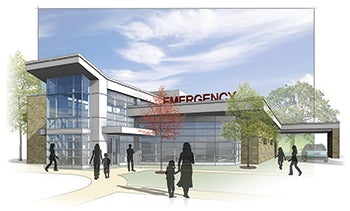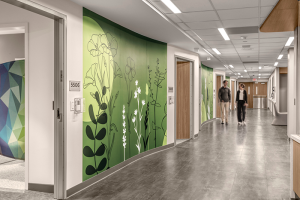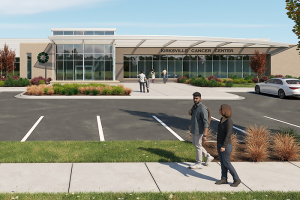Health system to build freestanding EDs
 |
| RENDERING COURTESY OF ERDMAN GROUP The design of a planned freestanding emergency department by Centura Health and its developer partner. |
Centura Health, a 16-hospital health care system based in Englewood, Colo., is teaming up with the Larkin Group, a freestanding emergency department (ED) developer from Houston, to accelerate the delivery of emergency care centers as Centura pursues its community health strategy.
The two organizations will share in the capital costs of building each location, and will be staffed by Centura Health-affiliated ED physicians.
Centura, meanwhile, will continue operating three freestanding EDs in Westminster and Aurora and six urgent care centers in its service area, according to HFM’s sister publication Hospitals and Health Networks.
Along with shortening the time to bring the emergency centers to market, Larkin contributes the experience of building and owning six EDs in Texas, says Pam Nicholson, senior vice president of strategy, Centura.
“We wanted to make sure that we could get into the market and make our impact as fast as possible, and we needed a partnership to do so,” she says. “As a health system, we don’t have all of the answers or the expertise. They (Larkin) have the experience in starting these up quickly, and the management of it is different from an ED that’s right there in the hospital.”
By working with Centura, Larkin gains the expertise of a large health system that already knows the market and can seamlessly connect patients to other services not offered in the ED through a connected electronic health record system, says Kelly Larkin, M.D., CEO. Colorado has a high utilization rate of emergency services and more than 20 percent of its population is enrolled in Medicaid, factors that could impact demand.
The two companies are working to determine the locations for several new EDs across Colorado, with an announcement expected in the next six months. New locations will fit into Centura’s “neighborhood health strategy,” and be tied to where there are gaps in health and wellness services around the health system’s market.
“In an era of consumer-driven health care, we are committed to evolving our partnerships and strategies to ensure [that] we meet the health needs of the communities we serve,” says Gary Campbell, president and CEO, Centura Health.
Larkin believes that such community-based, freestanding EDs are a critical piece of any hospital’s strategy to meet population health needs.
“Patients need these types of access points, and patients want this kind of quality care where they don’t have to go too far, wait to be seen, and where we could help them on the cost of care delivery,” Larkin says. “I think that it’s more than a value-add; it’s almost imperative that we do this.”




